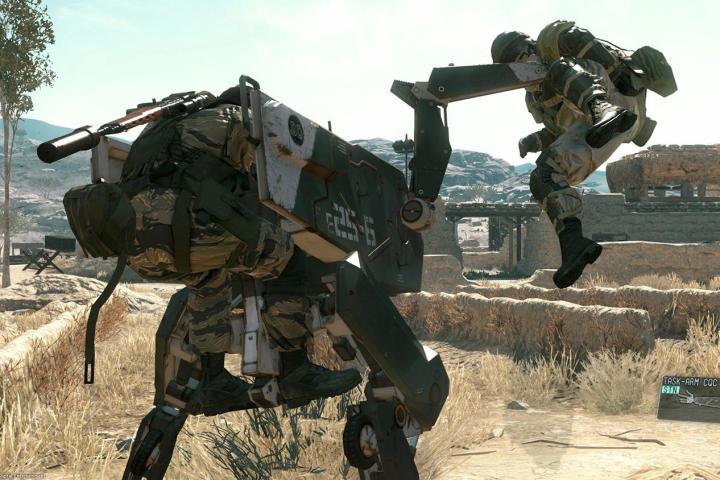
After briefly enjoying a laugh at Konami’s bravado in thinking this was a good idea, I started to realize there were real implications to this decision. Not all users have dedicated access to high-speed Internet, and some who live in more remote areas pay by the gigabyte for service. Konami lists the requirements for Phantom Pain as needing 28GB of storage space, a mercifully small installation compared to some other recent titles, with Witcher 3 taking up about 40GB, and GTA V topping 60. It’s not hard to imagine that users who ordered a disc instead of pre-ordering digitally have an actual need to install that game that way, but they aren’t the only users who will be affected.
The lack of physical files on a disc is only going to make the Steam download situation on the first day more laborious. While a lot of users will undoubtedly start installing the moment it launches, downloads will also continue throughout the next day, and they’ll be sharing a portion of that bandwidth with disc users as well. It could lead to some lengthy download times before many users are actually able to start playing the game.
It’s not entirely clear why Konami is clutching the game files so tightly. Without having to send off a copy for physical release, the code can be tweaked right up until midnight for a smoother launch. If someone had their hands on a copy of the disc, they would have more time to start trying to break the DRM and play the game early, but Steam connectivity has replaced most other forms of copy protection, and that system is not easily fooled. A more cynical take might be that Konami is worried about the quality of the game, and wants to minimize public exposure before it actually goes on sale.
Whatever the reason may be, Phantom Pain is in serious trouble of alienating PC users with the nonchalant attitude towards distribution. There are high expectations for the newest Konami title, and PC users are increasingly dissatisfied with ports after recent, high-profile debacles such as Batman: Arkham Knight, so Phantom Pain has its work cut out for it.
Editors' Recommendations
- Metal Gear Solid Delta: Snake Eater: release date window, developer, trailers, and more
- Metal Gear Solid: Master Collection continues the series’ endless relevance
- Metal Gear Solid: Master Collection contains first 2 Metal Gear games, Konami confirms
- Delisted Metal Gear games are returning to digital storefronts


